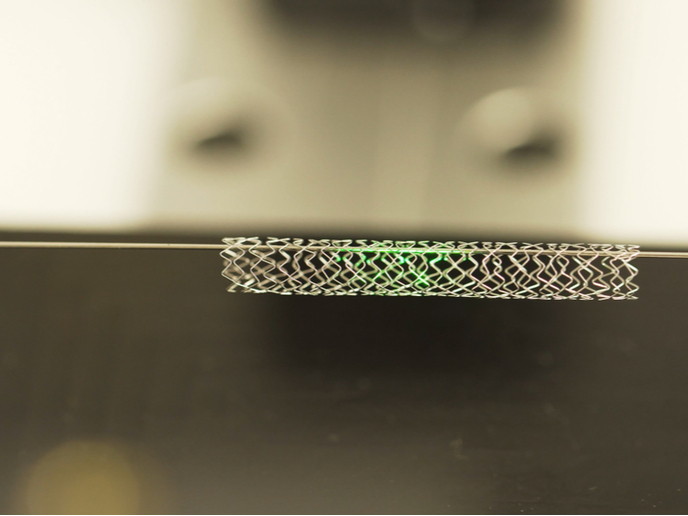Novel cardiovascular device will help reduce re-blocking of arteries
Cardiovascular diseases take the lives of 17.9 million people every year, accounting for about 31 % of all global deaths, according to the World Health Organization. The most common type of these, coronary artery stenosis (CAS), or the narrowing of coronary arteries that reduces blood flow to the heart, is a frequent cause of death in Europe. Stent implantation is a common way to treat CAS, but arteries can become re-blocked over time, a condition known as restenosis. This can happen when cells such as macrophages – occurring in the walls of blood vessels and in loose connective tissue – and smooth muscle cells from the patient’s blood grow over the stent surface. To address this challenge, a team of experts have designed and produced a new stent that uses human antibodies to prevent the activation of the patient’s immune response. Supported by the EU-funded EPICSTENT project, the team published its findings in the ‘Journal of Biomedical Materials Research Part B: Applied Biomaterials’. “In this study, stainless steel cardiovascular stents were functionalized with recombinant scFv [single-chain variable fragment] antibody fragments specific for vascular endothelial growth factor receptor-2 (VEGFR2) that is expressed on EPCs [endothelial progenitor cells] and ECs [endothelial cells].” Engineered antibodies A news release by the National University of Ireland (NUI) Galway explains the process: “The antibodies are isolated in the laboratory using phage display technology, a genetic engineering approach that mimics the human immune system, followed by production in E. coli bacteria for tethering onto the lattice structure of the stent under sterile manufacturing conditions.” The same news release says the steel stents that are coated with human antibodies hold the “endothelial cells from the patient’s blood and the surrounding artery.” It adds: “This leads to stents becoming rapidly ‘camouflaged’ within the walls of the native blood vessels, enabling them to avoid rejection by the patient’s immune system while providing the mechanical strength necessary to keep the artery open.” Project coordinator Prof. Gerard Wall from NUI Galway notes that the prototype stent “has demonstrated its effectiveness in preclinical studies and is now under development by the manufacturer in Poland with a view to reducing restenosis (reoccurrence of a narrowing of a blood vessel) events in patients and improving the long-term outcome of surgical interventions.” Throughout its 4-year duration, the EPICSTENT (Antibody-functionalised cardiovascular stents for improved biocompatibility and reduced restenosis) project also sought to foster exchange of knowledge and to create a new pool of specialised researchers. Their training covered protein engineering, materials science and medical devices production and analysis. The project’s final report summary on CORDIS states: “The work has increased the human skills base in advanced materials and nanobiotechnology in Europe and contributed to the development of the European medical device industry. The longer term biomedical goal of the work is to realise a commercially viable, biocompatible and bioactive cardiovascular stent that will exhibit improved in vivo performance, leading to significant improvements in patient outcomes and a corresponding decrease in vital healthcare costs.” For more information, please see: EPICSTENT project website
Countries
Ireland



